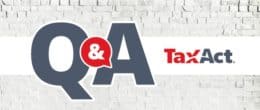6 Tax Tips for a Self-Publishing Author


File your self employed taxes with confidence.
Backed by our $100k accuracy guarantee.
Updated for tax years 2021 and 2022.
If you have a story, inspiration, or anything else you want to tell the world, there’s never been a better time to do it.
It’s easier than ever before for authors to self-publish their work and get paid. The traditional publishing gatekeepers can’t stop you now! There are so many options, from printing hard copies to sell in bookstores to publishing digital eBooks for use on Kindles and other e-reading devices.
It’s exciting when you start making money as a self-publishing author but don’t let that excitement distract you from learning how to report your earnings correctly for tax purposes. Get started with these six tax preparation tips.
Tips about taxes for Self-Publishing Authors
1. Find all your income from self-publishing and eBooks.
If you sell $600 or more in printed or digital books to a publisher, you should receive Form 1099-NEC or Form 1099-MISC in the mail after the end of the year.
If you sell books yourself and accept credit cards or other online services for payment, you should generally receive a Form 1099-K from the credit card processing company.
As of 2022, payment settlement entities (PSEs) must send you Form 1099-K if they processed $600 or more in transactions during the year. Before 2022, payment platforms were not required to report business transactions to the IRS unless you made at least 200 separate transactions totaling at least $20,000 in a calendar year — so things have changed quite a bit!
You must report at least as much total business income as shown on all the 1099 forms you receive. You must also report income from book sales regardless of receiving a Form 1099. For example, if you sold books for cash at an outdoor market, you should also report that income. Even if you received less than $600 from a publisher, you should still report any income you made, no matter how little.
2. Report your writing income and expenses from self-publishing with the proper form.
When you sell goods and services, even eBooks, on the internet, the Internal Revenue Service (IRS) considers you to have a business. Unless you organize your writing business some other way — like a corporation, partnership, or another type of small business — you are by default defined as a sole proprietorship in the eyes of the IRS. In that case, you should report your income on Schedule C with your Form 1040, Individual Income Tax Return.
Don’t be confused by Schedule E, Supplemental Income and Loss. It’s true that “royalties” are reported on Schedule E. However, the IRS specifies that royalty income and expenses as a self-publishing author must be reported on Schedule C, not Schedule E.
3. If you make a net profit, expect to pay self-employment tax.
You must file Schedule SE, Self-Employment Taxes if you have a profit from your business. Self-employment tax includes Social Security tax and Medicare tax. It’s calculated as 15.3 percent of your net self-employment income (12.4 percent for Social Security + 2.9 percent for Medicare). That’s the income you earned as a self-publishing author after allowable tax deductions for business expenses.
When you use TaxAct® to e-file, our tax prep software automatically calculates your self-employment tax for you and enters it in Schedule SE, if required.
4. If you have a net loss, you may be able to offset some of your other taxable income.
Writing and selling books is not always profitable in the first year. If your expenses exceed your income, you may be able to deduct your business loss. If you have other income, like from a traditional job, you can deduct your business loss to help offset that income and reduce your tax bill.
To meet the qualifications for this deduction, make sure you are treating your writing like it’s a business rather than just a hobby. Use careful record keeping of your business expenses and save receipts or important documents such as royalty statements.
5. Don’t forget about deducting business expenses.
Keeping good records and treating your writing as a job will also serve you well when you’re looking for business expenses to write off come tax time.
You can calculate your deductible expenses by keeping track of your money when producing and publishing your work. Things like travel expenses, the home office deduction (including anything from office supplies to your entire office space), and other related expenses can add up to a decent tax break for professional writers.
6. You may also have state and local tax obligations.
If you live in a state with state income tax, you should include your business income on your state income tax return.
You may also have to collect state sales tax on any sales and file excise tax returns. Be sure to research your state’s rules and determine how often you are required to file excise tax returns. Doing so will help you avoid any late payment and filing penalties.






